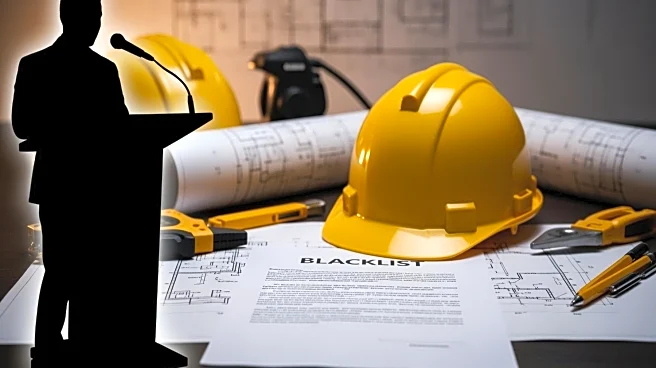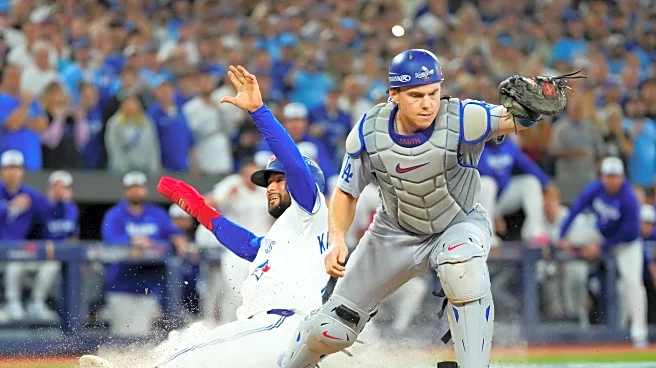What's Happening?
The Undercover Policing Inquiry, established to investigate state involvement in the blacklisting of construction workers, is facing criticism for its approach. Imran Khan, representing the Blacklist Support Group (BSG), has alleged that the inquiry is failing
to adequately examine the relationship between undercover police and businesses involved in blacklisting. The inquiry, which has been ongoing since 2015, has heard evidence of police monitoring trade union activities due to fears of state subversion. However, Khan argues that the inquiry's focus has been superficial, neglecting the deeper connections between police and blacklisting practices. The inquiry's interim report in 2023 did not mention blacklisting, raising concerns about its thoroughness. The inquiry was initiated by then Home Secretary Theresa May in 2014 following revelations of undercover policing practices.
Why It's Important?
The criticism of the Undercover Policing Inquiry highlights significant concerns about transparency and accountability in state practices. The alleged failure to fully investigate blacklisting practices could have implications for workers' rights and the integrity of trade unions. If the inquiry does not address these issues comprehensively, it may undermine trust in public institutions and their ability to protect workers from unjust practices. The construction industry, which has been historically affected by blacklisting, may continue to face challenges in ensuring fair employment practices. The inquiry's approach could also set a precedent for how similar investigations are conducted in the future, impacting public policy and legal standards.
What's Next?
The inquiry is expected to continue examining the role of undercover police in blacklisting practices, with calls for a more thorough investigation into the connections between police and businesses. The Blacklist Support Group is advocating for a deeper exploration of the issue, including the examination of specific incidents involving undercover officers. The inquiry's findings could lead to policy changes or legal actions aimed at preventing future blacklisting practices. Stakeholders, including trade unions and civil rights groups, are likely to continue pushing for greater transparency and accountability in the inquiry's proceedings.
Beyond the Headlines
The inquiry's approach raises ethical questions about the balance between national security and individual rights. The use of undercover policing to monitor trade union activities touches on broader issues of privacy and civil liberties. The inquiry's findings could influence public discourse on the role of state surveillance and its impact on democratic processes. Additionally, the inquiry may prompt discussions on the need for reforms in how state agencies interact with private businesses, particularly in industries vulnerable to blacklisting.

















